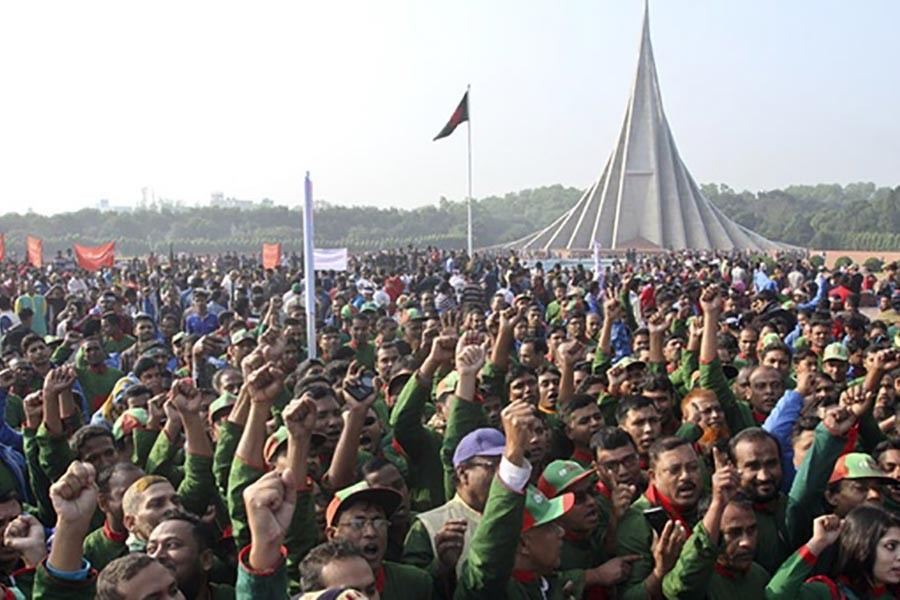The nation today celebrates the 48th Victory Day that marks its triumphant emergence as a sovereign entity after a nine-month-long bloody war against the brutal Pakistani occupation forces. The war had exacted a huge cost, in terms of life and properties. Sufferings of millions who stayed at home and many others who took refuge in neighbouring India knew no bounds. Yet when the victory came the entire nation had erupted into great jubilation forgetting momentarily all their losses and trauma. The achievement---independence was, indeed, great by any measure. That is why when the Victory Day comes every year, the people hold grand celebrations. But they never forget to pay homage to the freedom fighters and many others who had made supreme sacrifices for the sake of a free and independent Bangladesh.
This auspicious occasion, naturally, offers an opportunity to the nation to look, in retrospect, at the successes and failures in attaining the goals for which all the sacrifices were made. The country, after overcoming the initial hiccups, both manmade and natural, has definitely made economic progress, particularly during the last three decades. Lately, the pace of progress has remarkably picked up with the economy growing at a decent pace and poverty declining at a notable rate. All these have got international recognition. Human development indicators, which unquestionably need further improvement, are better than that of many neighbouring countries. Bangladesh is also poised to achieve middle-income country status as it has already fulfilled most conditions for graduation from LDC (least developed country).
But worries remain about poor rate of job creation, malfunctioning national institutions and quality of governance. The process of accountability still remains weak at all levels. No notable improvement is also being witnessed in graft situation. The cost of doing business is still high despite some improvement in physical infrastructures. Bureaucracy continues to be a hurdle for all purposes, including promotion of business and investment.
There is also a strong debate over the quality of democracy that is now in place in the country. As far as strengthening of democracy is concerned, opportunities do come and get wasted time and again in a highly polarised political atmosphere. Bipartisan political rivalry is so bitter that it has been giving rise to a sense of insecurity and instability. Without those shortcomings, the economy would have performed much better in a peaceful democratic atmosphere.
The nation has got yet another opportunity to establish a true democratic order through the upcoming general election. Unlike the one held in 2014, the forthcoming election is expected to be participatory. However, going by the pre-polls incidents that have been taking place across the country during the last few days, it can be said that the overall atmosphere is far from ideal.
The major political parties through their activities do need to leave a calming effect on the prevailing situation. But the most important player, both legally and constitutionally, in the matter of elections is the Bangladesh Election Commission. Everything depends on its firmness and neutrality. Hopefully, it would exercise all its powers judiciously so that yet another opportunity that has come by after five years does not go waste.


